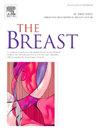Preoperative reference values for breast cancer patients using the BREAST-Q
IF 5.7
2区 医学
Q1 OBSTETRICS & GYNECOLOGY
引用次数: 0
Abstract
Introduction
The BREAST-Q can be used to evaluate the health-related quality of life (HRQL) of breast cancer patients. Data interpretation is limited by the lack of previous reference values based solely on patients with a recent breast cancer diagnosis.
Methods
A total of 627 patients, all with newly diagnosed breast cancer, were asked to participate in the study. The BREAST-Q modules for mastectomy and breast-conserving surgery were used. The results for the scales were reported as mean with standard deviation (SD). The effect of patient characteristics, including age, body mass index (BMI), and ASA-classification on the HRQL were analyzed with multiple linear regression.
Results
In total, 315 patients (50.2 %) participated. The mean (SD) age was 60.3 (10.1) years. Mean scores (SD) were the following: Psychosocial Well-being 70.8 (15.0), Sexual Well-being 58.2 (15.1), Satisfaction with Breasts 59.9 (15.6), and Physical Well-being: Chest 81.7 (15.7). The psychosocial well-being, sexual well-being, and satisfaction with breasts were all similar compared to the normative mean scores of the scales. The physical well-being of the chest was lower than the normative mean value (p < 0.001). Psychosocial well-being (p = 0.007), sexual well-being (p = 0.007), and satisfaction with breasts (p < 0.001) were lower in patients with higher BMI. Younger patients reported lower physical well-being of the chest (p < 0.001).
Conclusions
This study established preoperative reference values for the BREAST-Q in breast cancer patients. This data can be used to evaluate the HRQL in breast cancer patients accurately.
使用 BREAST-Q 为乳腺癌患者提供术前参考值
引言 BREAST-Q可用于评估乳腺癌患者的健康相关生活质量(HRQL)。研究方法:共邀请了 627 名新确诊的乳腺癌患者参与研究。研究使用了乳房切除术和保乳手术的 BREAST-Q 模块。量表结果以平均值加标准差(SD)的形式报告。通过多元线性回归分析了患者特征(包括年龄、体重指数 (BMI) 和 ASA 分级)对 HRQL 的影响。平均年龄(标清)为 60.3(10.1)岁。平均得分(标清)如下:社会心理健康 70.8 (15.0),性健康 58.2 (15.1),对乳房的满意度 59.9 (15.6),身体健康:胸部 81.7(15.7)。社会心理健康、性健康和对乳房的满意度均与量表的标准平均值相近。胸部的身体健康状况低于常模平均值(p <0.001)。体重指数(BMI)较高的患者的社会心理健康(p = 0.007)、性健康(p = 0.007)和对胸部的满意度(p < 0.001)均较低。这项研究确定了乳腺癌患者术前 BREAST-Q 的参考值。该数据可用于准确评估乳腺癌患者的 HRQL。
本文章由计算机程序翻译,如有差异,请以英文原文为准。
求助全文
约1分钟内获得全文
求助全文
来源期刊

Breast
医学-妇产科学
CiteScore
8.70
自引率
2.60%
发文量
165
审稿时长
59 days
期刊介绍:
The Breast is an international, multidisciplinary journal for researchers and clinicians, which focuses on translational and clinical research for the advancement of breast cancer prevention, diagnosis and treatment of all stages.
 求助内容:
求助内容: 应助结果提醒方式:
应助结果提醒方式:


